6. The Long Good Friday (1979)
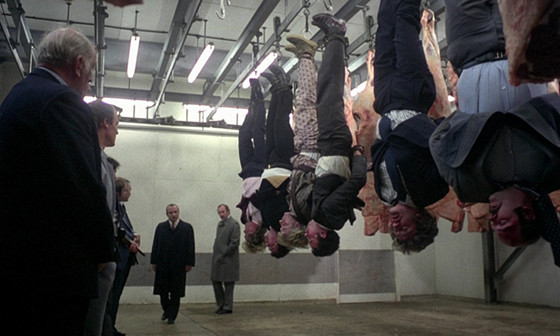
“The Long Good Friday” features Bob Hoskins in a breakout role starring as Harold Shand, the boss and patriarch of a criminal empire intent on ushering London into the “new London” of transatlantic commerce and global prestige. Yet, on the eve of the biggest deal of Shand’s life, an unknown foe — who kills three of his men and blows up his pub — threatens to destroy his criminal empire. As he attempts to suss out the mystery adversary, Shand must control his baser, violent instincts and maintain his business-minded persona. As Shand, Hoskins is both menacing and charming, evoking both sheer terror from those he suspects of crossing him and sympathy from the audience. While the film spans intense scenes of mob interrogation and has all of the requisite elements of a thriller, it is also a character study of Shand. Helen Mirren plays Victoria, the level-headed, tough-love moll who can bring Shand back to civility from a violent rage.
“The Long Good Friday” is stylish, and so British that American viewers may have trouble following the dialogue even with the subtitles on. The film also features a young, unknown Pierce Brosnan as an IRA hitman and a memorable score by Francis Monkman.
7. Sleuth (1972)
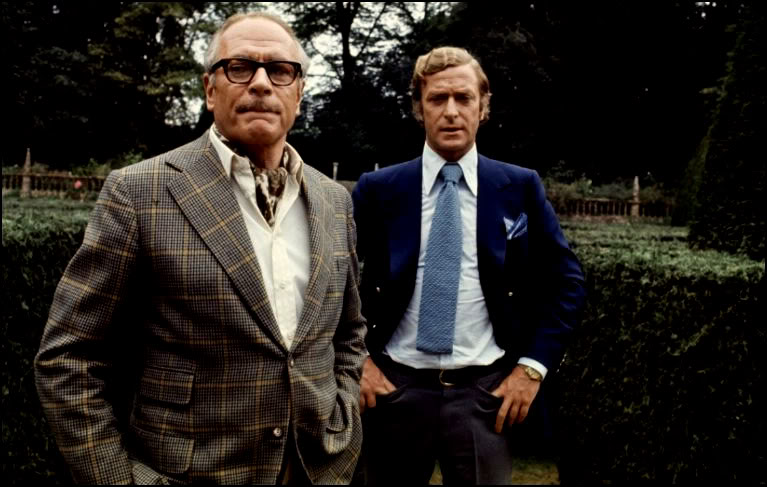
In “Sleuth,” game-obsessed mystery writer Andrew Wyke (Laurence Olivier) invites the lover of his estranged wife, Milo Tindle (Michael Caine) to his country manor to propose a solution to their love triangle. The film’s opening scene — an overhead crane shot of a befuddled Tindle navigating through a hedge maze, where Wyke sits coolly at the center, audibly composing the details of one of his fictional murder plots — orients the viewer to what they are about to what they are about to see. For the next two hours, Wyke and Tingle lead the viewer through a labyrinthine game of spy vs. spy where the rules are always changing and the stakes are always rising.
“Sleuth” is an adaptation of a Broadway play of the same name, and takes place largely in one setting. But while the film is confined to Wyke’s drawing room, there is plenty to look at, from the sinister puzzles to the magic automatons that most recently served as inspiration for the production design of “Knives Out” (2019).
“Sleuth” is directed by Joseph L. Mankiewicz, who, as the director of “Five Fingers” (1952) and “Julius Caesar” (1953), was known for his capacity to distill complex source material into literate cinema, as well as his ability to wrest Oscar-winning performances from his actors. “Sleuth” pits two great actors of different generations against one another, with the contrast between their characters — Olivier’s Wyke is snobbish and aristocratic, while Caine’s Tindle is working-class and easygoing — parallels the disparity in the two’s acting styles. Both leads were nominated for an Oscar for Best Actor, making “Sleuth” one of three movies (also “Who’s Afraid of Virginia Woolf” (1966) and “Give ‘em Hell, Harry!” (1975) in which the entire on-screen billed cast received Oscar nominations. Mankiewicz received a nomination for Best Director, and composer John Addison received a nomination for Best Original Score.
8. State of Siege (1972)
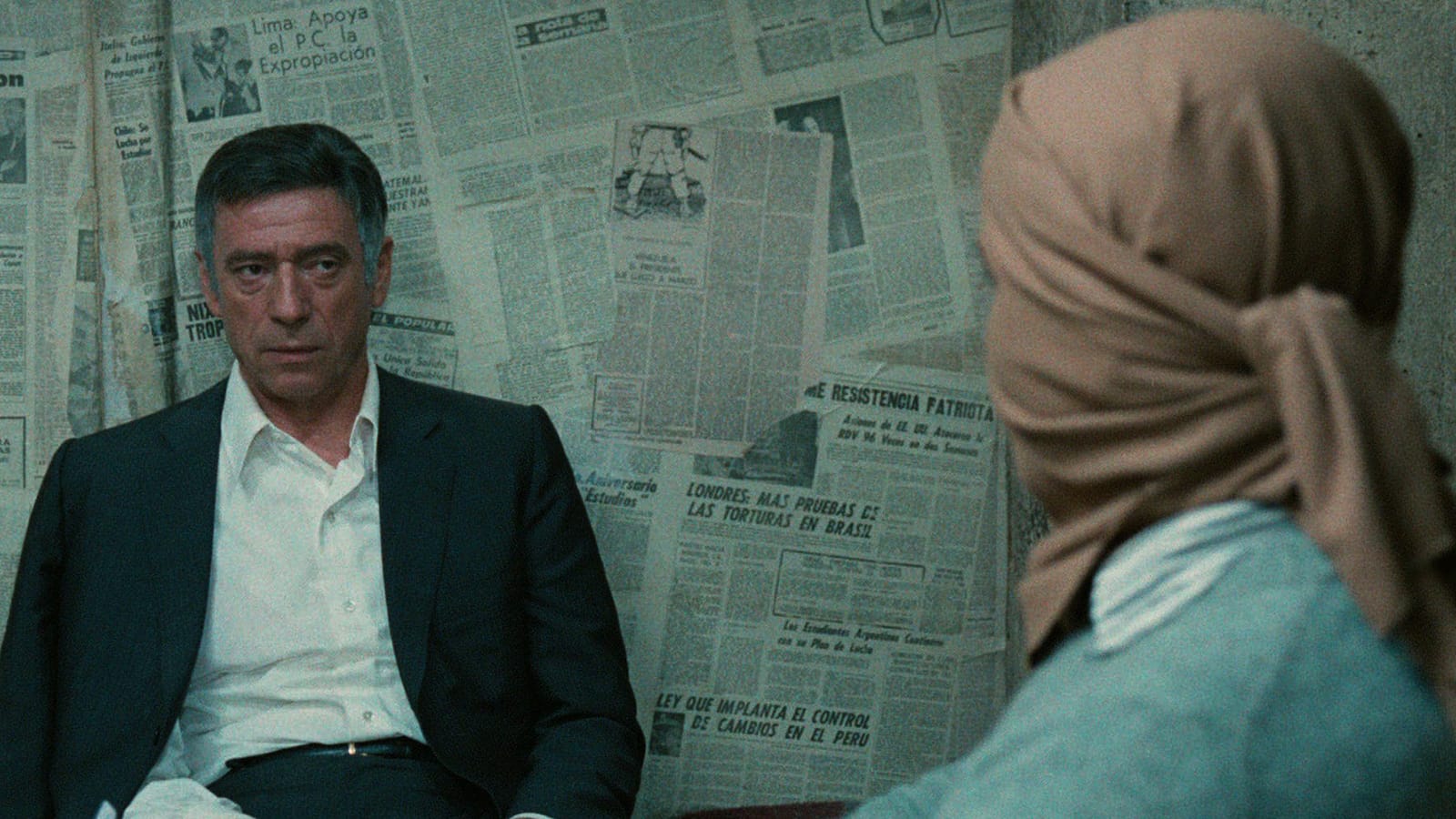
“State of Siege” is about an American official named Philip Michael Santore (Yves Montand) who is kidnapped in Montevideo, Uruguay by a left-wing Tupamaro guerilla group and subjected to questioning while political tensions between the revolutionaries and military government throughout the city escalate to violence. A member of the Tupamaros named Hugo (Jacques Weber) interrogates Santore about the counterinsurgency and torture training organized by the CIA through USAID. The film is loosely based on the real-life murder of Dan Mitrione, an American police adviser who, in 1970, was kidnapped by Tupamaro guerillas and found dead in an abandoned car 10 days later.
“State of Siege” is achronological, and opens with the discovery of Santore’s dead body in an abandoned Cadillac. Rather than centering on whether Santore will die or not, the film’s complex plot revolves around how he comes to die and the violence that begets violence in his wake. The loose structure of the film allows Costa-Gravas to explore political conflict from multiple angles, with perspective shifting from the American government to the Tupamaro guerillas to the Uruguayan government. The film is critical of all sides, acknowledging the stalemate and recognizing the cycle of violence it necessitates. “State of Siege” features thrilling scenes of revolutionaries in action, and a memorable opening sequence establishing the chaotic military control over the country. The film also features an arresting score by Greek composer Mikis Theodorakis.
9. The Offence (1973)
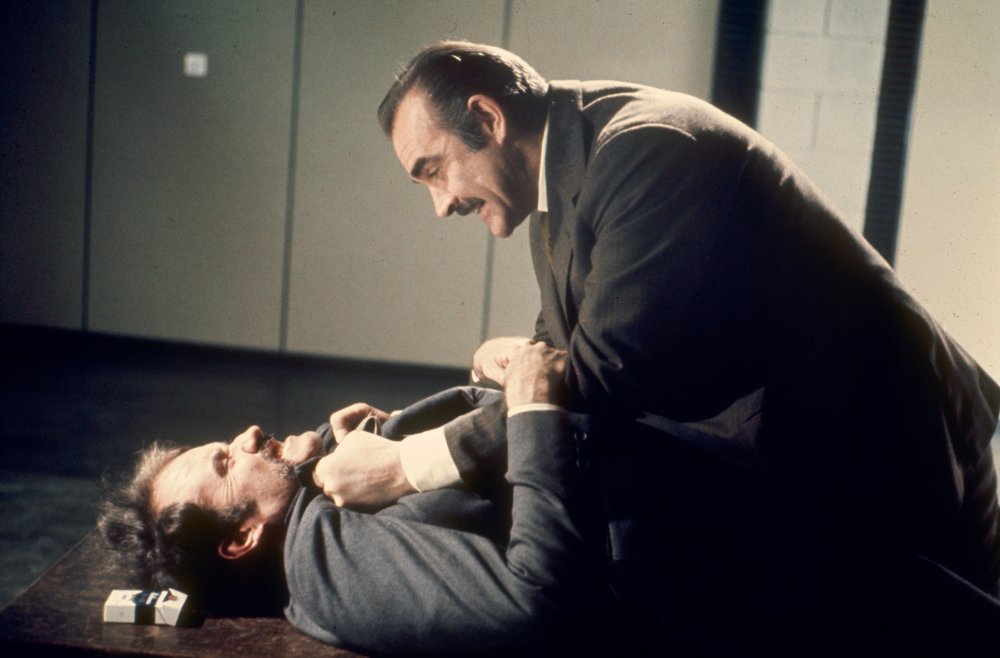
While Sidney Lumet helmed some of the most celebrated thrillers of the 1970s, including “The Anderson Tapes” (1971), “Serpico” (1973), and “Dog Day Afternoon” (1975), “The Offence” remains one of the most underrated films in the director’s decade output. Based on the 1968 stage play “This Story of Yours” by John Hopkins, “The Offence” enters on the fallout that takes place after police detective Johnson (Sean Connery) kills suspected child molester Kenneth Baxter (Ian Bannen) during an interrogation. The film proceeds through a series of flashbacks that reveal the horrors haunting Johnson and the pressures that set the stage for his violent outburst.
While the source material is theatrical in nature, Lumet’s direction adds elements of suspense and thriller to the story. “The Offence” is one of the rawest, most unflinching examinations of the psyche of the detective, and features one of Connery’s finest — and darkest — film performances. Though the film was generally well-received upon release, and set the template for the cat-and-mouse dynamic between interrogator and suspect seen in so many police procedurals today, “The Offence” remains one of the less-known thrillers of the 1970s.
10. The Day of the Jackal (1973)
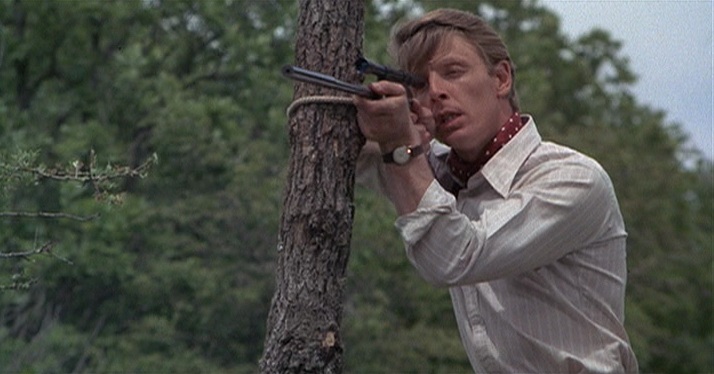
Based on the bestselling novel of the same name, “The Day of the Jackal” is about an assassin codenamed the “Jackal” (played by Edward Fox) who is hired by a French underground paramilitary organization to kill French president Charles de Gaulle in 1963. The film pivots between the Jackal’s meticulous planning of the assassination and the attempts by the French police, led primarily by Deputy Commisioner Claude Lebel (Michael Lonsdale) to prevent the attack.
While the plot is complex, director Fred Zinnemann executes it flawlessly. The clockwork plot is propelled by the cold, calculating precision of the Jackal and the diligent intelligence of Lebel propel the clockwork plot forward, establishing the gold standard for the cat-and-mouse dynamic regularly seen in contemporary procedural thrillers. The exhaustive detail of the source material, written by British journalist Frederick Forsyth, lends the film a documentary realism that reels the viewer in and accentuates the tension.
While the film was well-received upon its release and did well at the box office, it remains one of the less-known thrillers of the 1970s. The film garnered one Academy Award nomination — Ralph Kemplen for Best Film Editing.